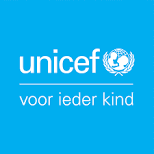
Countries failing to stop harmful marketing of breast-milk substitutes, warn WHO and UNICEF
Agencies encourage women to continue to breastfeed during the COVID-19 pandemic
A new report by WHO, UNICEF, and the International Baby Food Action Network (IBFAN) reveals that despite efforts to stop the harmful promotion of breast-milk substitutes, countries are still falling short in protecting parents from misleading information.
The COVID-19 pandemic highlights the need for stronger legislation to protect families from false claims about the safety of breast-milk substitutes or aggressive marketing practices. Breastmilk saves children’s lives as it provides antibodies that give babies a healthy boost and protect them against many childhood illnesses.
WHO and UNICEF encourage women to continue to breastfeed during the COVID-19 pandemic, even if they have confirmed or suspected COVID-19. While researchers continue to test breastmilk from mothers with confirmed or suspected COVID-19, current evidence indicate that it is unlikely that COVID-19 would be transmitted through breastfeeding or by giving breastmilk that has been expressed by a mother who is confirmed or suspected to have COVID-19. The numerous benefits of breastfeeding substantially outweigh the potential risks of illness associated with the virus. It is not safer to give infant formula milk.
Of the 194 countries analysed in the report, 136 have in place some form of legal measure related to the International Code of Marketing of Breast-milk Substitutes and subsequent resolutions adopted by the World Health Assembly (the Code). Attention to the Code is growing, as 44 countries have strengthened their regulations on marketing over the past two years.
However, the legal restrictions in most countries do not fully cover marketing that occurs in health facilities. Only 79 countries prohibit the promotion of breast-milk substitutes in health facilities, and only 51 have provisions that prohibit the distribution of free or low-cost supplies within the health care system.
Only 19 countries have prohibited the sponsorship of scientific and health professional association meetings by manufacturers of breast-milk substitutes, which include infant formula, follow-up formula, and growing up milks marketed for use by infants and children up to 36-months old.
“The aggressive marketing of breast-milk substitutes, especially through health professionals that parents trust for nutrition and health advice, is a major barrier to improving newborn and child health worldwide,” says Dr Francesco Branca, Director of WHO’s Department of Nutrition and Food Safety. “Health care systems must act to boost parent’s confidence in breastfeeding without industry influence so that children don’t miss out on its lifesaving benefits.”
WHO and UNICEF recommend that babies be fed nothing but breast milk for their first 6 months, after which they should continue breastfeeding – as well as eating other nutritious and safe foods – until 2 years of age or beyond.

